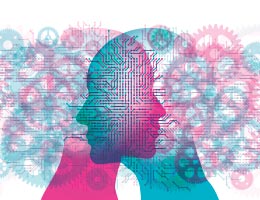
Nov. 3, 2019—Alzheimer's disease can be misunderstood. Forgetting things now and then doesn't mean someone has this common form of dementia. Consider these eight myths and facts about Alzheimer's:
- 1. Myth: Alzheimer's only strikes seniors. Age is the biggest risk factor for the disease—most cases occur after age 65, according to the Alzheimer's Association. But younger people can get the disease too. Early-onset Alzheimer's affects an estimated 200,000 Americans under 65.
- 2. Fact: Memory loss is one of the first signs of the disease. Many people occasionally and temporarily misplace items or forget a name. But with Alzheimer's, the memory and thinking problems eventually interfere with daily activities. A person with Alzheimer's may get lost in familiar places or forget how to cook a favorite meal or balance a checkbook.
- 3. Fact: No one knows exactly why Alzheimer's occurs. But scientists know that nerve cells that affect thinking, learning and memory become damaged and die during the course of the disease. And brain changes may start long before memory loss begins.
- 4. Myth: Alzheimer's isn't fatal. It's actually the sixth leading cause of death in the U.S., according to the Centers for Disease Control and Prevention.
- 5. Fact: Other things besides Alzheimer's can cause memory loss. Treatable causes of memory loss include thyroid disorders, depression, vitamin deficiencies and medication side effects.
- 6. Fact: Alzheimer's causes mood changes. Someone with Alzheimer's may become confused, suspicious, angry or depressed.
- 7. Myth: Alzheimer's can't be treated. No treatment can stop Alzheimer's from progressing. But medication can slow some symptoms for a while. In this way, treatment may benefit people with Alzheimer's and their caregivers.
- 8. Fact: Getting an early diagnosis is important. Alzheimer's can't be cured. But an early diagnosis can give people with the disease and their loved ones time to plan for the future.
Know the warning signs.
If you or a loved one has problems with thinking or remembering, see a doctor. You can learn more about Alzheimer's and its warning signs in our Alzheimer's Disease health topic center.